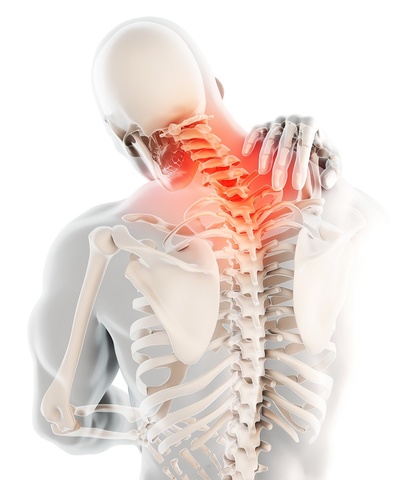
FAST FACTS: Fibromyalgia

Fibromyalgia (FM) is characterized by continuing widespread pain and tenderness in muscles, tendons, and other soft tissues. Symptoms are extreme fatigue, sleep problems, headaches, depression, anxiety, and joint stiffness. Some may also report difficulty with swallowing, bowel and bladder problem, numbness, tingling, and memory and concentration problems. People with fibromyalgia tend to wake up with body aches and stiffness. For some, pain improves during the day and gets worse at night, others have pain all the time.
What Healthcare Professionals Look For
- Tender points found in the soft tissue on the back of the neck, shoulders, chest, lower back hips, shins, elbows, and knees. Mild to severe pain that spreads from these areas.
- Tension or migraine headache
- Pain that may feel like a deep ache or a shooting or burning pain
- Pain that feels like is it is coming from the joints
- Pain that may get worse with activity, cold or damp weather, anxiety, and stress
Possible Interventions
- Non-Drug Treatments
- Physical therapy, exercise, and fitness programs
- Stress-relief methods, including light massage and relaxation techniques
- Cognitive-behavioral therapy, and support groups
- Acupressure and acupuncture
- Good sleep routines to improve quality of sleep
- Medications prescribed by your loved one’s healthcare provider and used in combination with exercise and behavior therapy
- Severe cases of FM may require a referral to a pain clinic
What Else You Should Do
- Write down and share information about your loved one’s pain with their healthcare provider
- Use a Pain Diary to note important information useful to the healthcare provider
- Encourage your loved one to try a non-drug treatment and document the impact on their pain in their Pain Diary
References:
- Centers for Disease Control and Prevention (CDC). January 6, 2020. Fibromyalgia. Accessed 3.13.2022. https://www.cdc.gov/arthritis/basics/fibromyalgia.htm#:~:text=Fibromyalgia%20(fi%C2%B7bro%C2%B7my,pain%20than%20people%20without%20fibromyalgia.
- Mayo Clinic. October 26, 2021. Fibromyalgia. Accessed 3.13.2022. https://www.mayoclinic.org/diseases-conditions/fibromyalgia/symptoms-causes/syc-20354780
Revised January 2022
